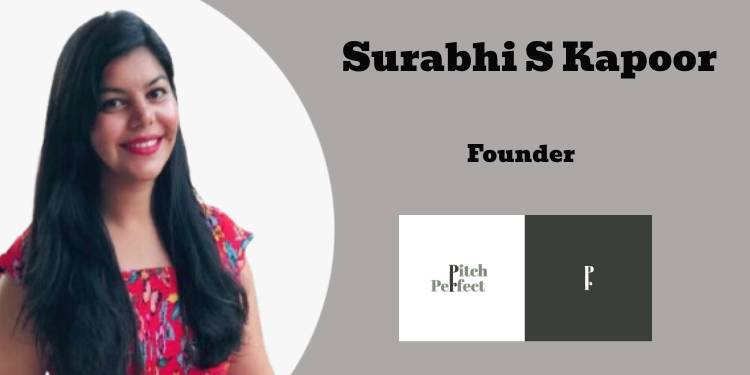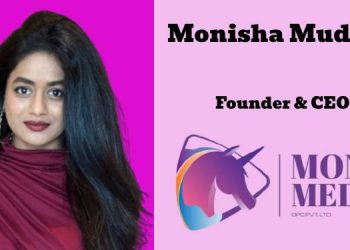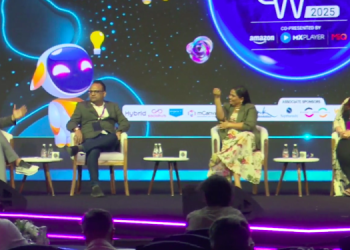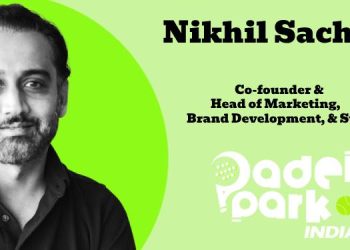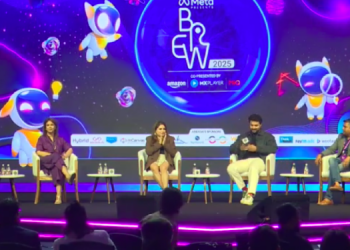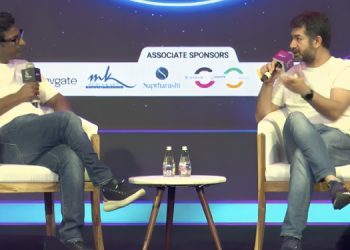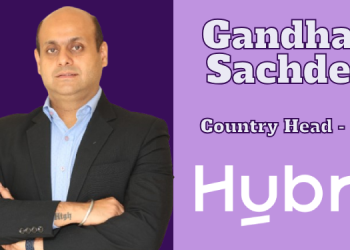Medianews4u.com caught up with Surabhi S Kapoor, Founder Pitch Perfect. This is an integrated PR agency that launched in 2019. Pitch Perfect started its journey in the F&B space and represents brands in Bangalore, including JW Marriott Hotel Bengaluru, and Rosetta Hospitality, Jamming Goat, and Reservoire. From F&B it diversified into multiple sectors.
With a Political Science degree from Miranda House, University of Delhi, she began her career as a political and sustainability journalist. This experience honed her ability to craft narratives, conduct research, and engage with stakeholders—skills that later proved invaluable in the dynamic world of PR.
She leveraged over a decade of experience in journalism and marketing to establish Pitch Perfect, an agency that offers a 360-degree approach to communication. Under her leadership, Pitch Perfect has executed campaigns for brands such as Dell, NDTV Good Times, Kingfisher (KF Calendar), Airbnb, UNICEF, Xiaomi, Myntra, and Flipkart.
Beyond corporate communication, she is deeply committed to driving social impact. She authored a nationally recognised research paper on child education and child labour in India, in collaboration with UNICEF and the Government of India. Her expertise extends into public policy as well, having worked closely with government bodies in Karnataka, Rajasthan, and Goa, spearheading impactful initiatives that have left a lasting mark.
At Pitch Perfect, Kapoor and her team bring brands to life through strategic communication that resonates with media, influencers, and consumers alike. Their bespoke campaigns are designed to maximize visibility, engagement, and measurable business impact.
The agency’s expertise now spans multiple industries, including FMCG, Wellness, Hospitality, Fashion, Retail, Luxury & Art, Education, Pharma, Real Estate, Travel & Tourism, Environment & Sustainability, Law & Justice, Mobility & Auto, and beyond.
Q. As a female entrepreneur, what were the challenges faced in starting Pitch Perfect?
Starting a PR agency as a young woman was equal parts exhilarating and exhausting. The biggest challenge? Being taken seriously. PR is still a space where relationships and credibility take time to build, and as a young female entrepreneur, you sometimes have to work twice as hard to prove your expertise.
There were moments of imposter syndrome, tough negotiations, and learning to stand my ground. But the silver lining? It shaped Pitch Perfect into an agency that champions bold storytelling, out-of-the-box thinking, and a community-driven approach—because we’ve had to hustle for every single win.
Also, let’s be honest—no one hands you a ‘How to Run a PR Agency’ manual. You learn by doing, failing, and constantly unlearning outdated ways of working. And that’s exactly the energy we bring to our work.
Q. Does the agency mainly work in the F&B space, or has it broadened?
F&B was our starting point (because who doesn’t love a good food story?), but we’ve grown far beyond that. Today, we work across lifestyle, luxury, tech, start-ups, fashion, beauty, and hospitality. The beauty of PR is that it’s fluid—good storytelling translates across industries.
We thrive on working with brands that are disrupting their space—whether it’s a tech start-up challenging the status quo, a luxury brand redefining experiences, or a hospitality brand breaking traditional formats. Our work is guided by the belief that PR isn’t just about press releases—it’s about creating movements, sparking conversations, and shaping brand legacies.
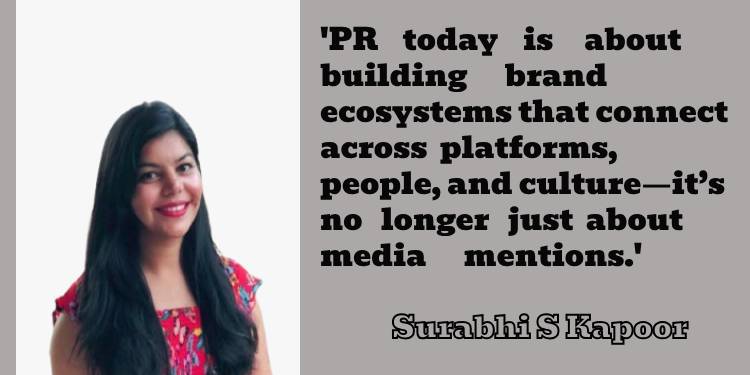
Q. Are we now seeing a trend where clients are looking for actual ROI from PR?
Absolutely! PR is no longer just about ‘brand buzz’—brands want tangible impact. Clients now ask, “How does this media coverage translate into leads?” or “Can influencer marketing actually drive conversions?”
We focus on PR that isn’t just seen and heard but felt—whether it’s through community-driven campaigns, influencer collaborations that go beyond one-off posts, or integrated storytelling that connects PR with social, digital, and experiential touchpoints.
We’re also leveraging tools like data analytics, AI-driven insights, and real-time social listening to measure the effectiveness of PR beyond just media impressions. PR today is part of a brand’s business strategy—it has to move the needle.
Q. Has the business of public relations become far more complex than it was a decade back? Kindly elaborate.
A decade ago, PR was about press coverage and media relationships. Today, it’s an entirely different beast—earned media, social media, influencer marketing, digital PR, reputation management, crisis control, and experiential storytelling are all interwoven.
PR today is about building brand ecosystems that connect across platforms and audiences. With the rise of AI, Web3, and hyper-personalization, traditional PR playbooks don’t work anymore. You have to be agile, experimental, and ready to pivot at any moment.
At Pitch Perfect, we don’t just react to trends—we stay ahead of them. We’re constantly learning and unlearning, bringing global best practices to the Indian market, and experimenting with new formats, whether it’s gamified PR campaigns, interactive storytelling, or immersive brand experiences.
Q. How will the DPDP Act impact PR agencies like Pitch Perfect?
The Digital Personal Data Protection (DPDP) Act is going to change how brands and agencies handle consumer data. PR has always relied on audience insights, but now, the focus is on transparency, consent, and ethical data use.
For us, this means rethinking how we approach media databases, email marketing, and audience segmentation. It also means being more mindful about consumer trust—PR can no longer just be about outreach; it has to be about authentic engagement.
Instead of blanket pitches, we’re moving towards hyper-personalized storytelling that respects audience privacy while still being impactful. This is an opportunity to shift from mass communication to more meaningful, community-driven interactions.
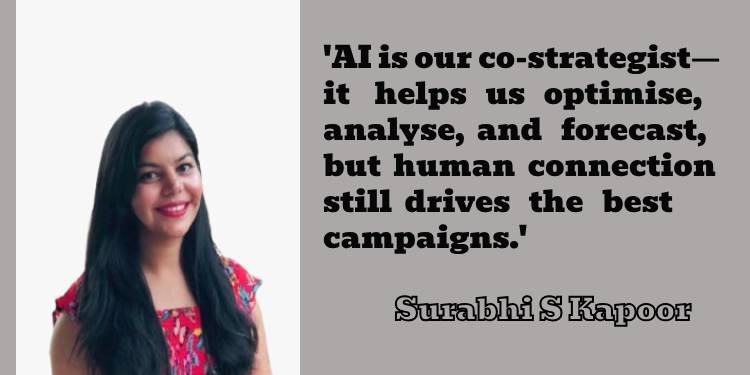
Q. Does Pitch Perfect invest a lot in data infrastructure? Is it important to foster a data-driven culture?
Yes, and yes! PR without data is just guesswork. We use social listening tools, audience sentiment analysis, and campaign performance tracking to make sure our strategies are not just creative but effective.
We’re big on insights-driven storytelling—whether that’s tracking which types of content resonate the most, analysing share of voice in the industry, or using AI-driven trend forecasting to help our clients stay ahead.
Data isn’t here to replace creativity; it’s here to supercharge it.
Q. Could you talk about the relationship that the agency has with journalists where PR crafts narratives while the journalist’s job is to examine them critically?
PR and journalism are like that one situationship—sometimes we’re in sync, sometimes we challenge each other, but ultimately, we need each other.
Good PR isn’t about pushing fluff—it’s about telling real, valuable stories that align with a journalist’s audience. We respect the fact that journalists have a job to do, and we approach PR with authenticity, not just spin.
We also believe in building real relationships, not just transactional ones. That means actually understanding a journalist’s beat, tailoring our pitches, and offering exclusives that add value rather than just pushing brand agendas.
Q. What role is AI playing in helping the agency offer a 360-degree approach to communication?
AI is our co-strategist, not our replacement. From automating media monitoring to using predictive analytics for trend forecasting, AI helps us work smarter, not harder.
We also use AI for:
● Sentiment analysis—understanding how audiences feel about a brand.
● Content optimisation—figuring out what type of storytelling works best.
● Crisis management—flagging potential PR risks before they escalate.
But at the end of the day, PR is about human connections—AI can give us insights, but creativity and intuition still drive the best campaigns.
Q. Could you talk about recent work done with clients?
Our work spans brand storytelling, digital amplification, influencer marketing, and experiential activations. Each brand we work with has a different DNA, and we shape our strategies accordingly.
● We redefined how legacy brands stay culturally relevant, tapping into nostalgia and contemporary pop culture.
● We leaned into localised storytelling, creating experiences that felt deeply personal and community-driven.
● We helped translate technology into human impact stories that resonated beyond just tech enthusiasts.
For us, PR is never one-size-fits-all. Every campaign is customized, experimental, and deeply rooted in storytelling.
Q. What role does earned media play in the strategy?
Earned media is the holy grail of PR—because when people talk about your brand organically, it holds 10x the credibility of paid content.
We focus on:
● Story-first pitching—we don’t just send press releases, we craft compelling narratives.
● Media relationships—building long-term partnerships, not just one-time placements.
● Cultural relevance—tapping into what’s trending, what’s meaningful, and what resonates.
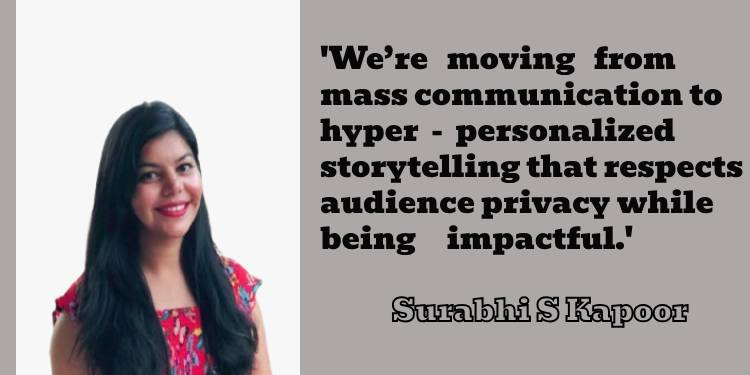
Q. What tactics work in social media in helping clients be a part of the consumer’s conversation?
● Building communities, not just followings.
● Jumping on trends without forcing it.
● Humanising brands through authentic storytelling.
● Memes, interactive content, and real-time engagement—because no one wants to talk to a corporate robot.
Social media is a conversation, not a broadcast—and that’s exactly how we approach it.

